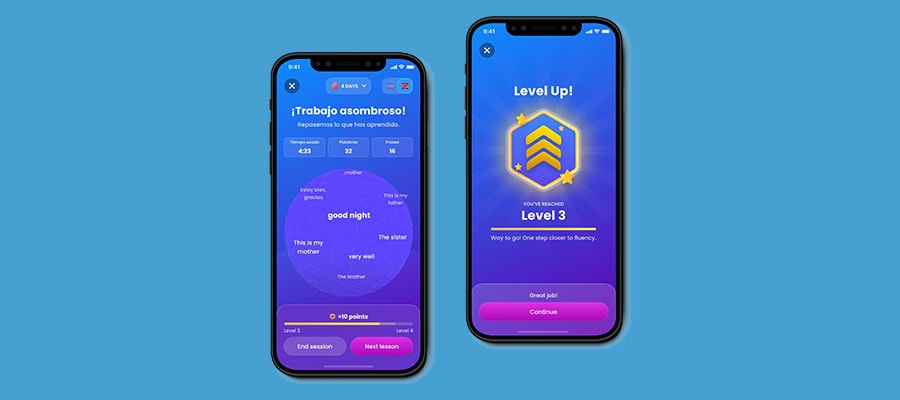Effective communication is critical in the fast-paced world of global commerce. For non-fluent English speakers (or emerging professionals who have just entered their first business careers), crafting compelling work documents can be a daunting task. Mastering workplace writing skills is vital whether you're seeking to close a deal, make contacts, establish a professional relationship or simply make your day-to-day correspondence more impactful.
Understanding the nuances of business English and applying them skillfully can set your company and you apart in the competitive corporate arena. Have a look at our guide on how to improve your corporate English writing skills.
What is it?
Business writing refers to the clear and purposeful use of language in written form within a professional context. It encompasses a wide range of documents, including emails, reports, proposals and presentations, tailored to communicate effectively with clients, colleagues and stakeholders. That can also include writing web content for professional audiences and clients.
What's an example of business writing?
One example is a formal email to a client:
Subject: Proposal for Partnership
Dear Mr. Smith,
I hope this email finds you well. I'm writing to present a partnership opportunity with XYZ Corp that aligns with your company's goals for expansion and innovation.
[...]
I look forward to your response and the possibility of future collaboration.
Warm regards,
Jane Doe
Why is effective business writing important?
Effective business writing is crucial as it reflects the professionalism and credibility of an individual and their organization. It ensures that the message is understood as intended, which is pivotal in decision-making processes and maintaining positive business relationships.
Clear writing improves workplace communication by minimizing misunderstandings, saving time and enhancing productivity. It facilitates seamless collaboration between teams and departments and aids in developing and maintaining a positive professional image.
Key elements of professional English writing
When crafting business documents, several key elements ensure your workplace writing is effective and well-received. These elements include:
- Structure and organization: A well-structured document with a clear introduction, body and conclusion makes your content more understandable and engaging. Use headings and bullet points to break down information and guide the reader through your message.
- Tone and formality: The tone should match the context and purpose of your communication. While a business proposal might require formal language, an internal email to colleagues can be less formal. Understanding the nuances of tone can greatly impact how your message is perceived.
- Purpose-driven writing: Every piece of corporate writing should have a clear purpose. Whether it's to inform, persuade, request or confirm, keeping the purpose in mind ensures that your writing is focused and achieves its intended goal.
- Attention to detail: Precision and accuracy are paramount. This includes correct grammar, punctuation and spelling, as well as ensuring that all facts and figures mentioned are accurate. Errors in your writing can diminish your credibility and confuse the message.
- Cultural sensitivity: In a global business environment, it is crucial to be aware of cultural differences and avoid culturally sensitive phrases. This sensitivity can prevent misunderstandings and foster more harmonious business relations.
By focusing on these elements of workplace writing, you can enhance your business English writing and ensure it's both professional and effective.
How can I improve my professional English writing?
Improving your business English writing involves focusing on clarity, conciseness and appropriateness. Here are a few strategies to get you started:
- Immerse yourself in business language: Read a variety of business-related materials such as reports, emails and articles.
- Practice regularly: Engage in writing exercises that mimic real-world business scenarios.
- Get feedback: Have your writing reviewed by proficient English speakers and incorporate their suggestions.
- Brush up on basics: Reinforce your understanding of grammar, vocabulary and punctuation.
- Utilize technology: Take advantage of language learning apps and online courses that offer business English modules. These tools can provide interactive learning experiences and immediate feedback.
- Join professional networks: Participate in forums and networking groups where business English is used. Observing and engaging in discussions can enhance your understanding and application of business terminologies and conventions.
Practical business writing tips
You've got a writing task to start but you don't quite know how to approach it. Here are some actionable steps to help you:
- Start with a clear purpose: Define the objective of your document and stick to it.
- Organize your thoughts: Use headings, bullet points and paragraphs to structure your content logically.
- Be concise: Use straightforward language and eliminate redundant words.
- Use an appropriate tone: Maintain professionalism and consider the cultural context of your audience.
- Revise and edit: Always revise your work for errors and clarity before sending it.
Bad corporate writing
To illustrate what to avoid, here are a few examples of bad writing:
- Overuse of complex vocabulary leading to confusing sentences.
- Long-winded paragraphs that bury the main point.
- Casual or inappropriate language and words that don't fit the business context.
- Writing that lacks a clear call to action.
- Ignoring cultural nuances and making assumptions based on one's own cultural context. This can lead to misinterpretations or even offense, undermining the purpose of the communication.
A bad example
Applying the points above, you can begin to see how this message uses some of these examples, this could be perfectly fine for written conversation with a friend but not on a more serious, professional level:
Subject: Quick Hello and Ask
Hey!
Hope this message finds ya in good spirits. Wanna catch up real quick this Thursday on a lil' something I've got on my mind? Got an idea that might just be up your alley - think major game-changer vibes for both of us. Let's make it happen. Excited to hear your thoughts!
Cheers!
Alex
The effects of poor professional writing
Poor business writing can have far-reaching repercussions that can significantly impact an individual's career progression as well as an organization's reputation. Ineffective communication may lead to misunderstandings and loss of opportunities, eroding trust between parties and taking a toll on professional relationships. It's not just about immediate confusion or delays; the long-term effects can include the potential loss of business, as clients and partners may perceive inefficiency and lack of professionalism.
English for effective business writing
Mastering workplace writing is a continuous process that demands dedication and practice. By focusing on clarity, structure and an audience-centered approach, you can craft messages that not only inform customers but also influence them.
Keep refining your skills, taking feedback positively, and staying updated with trends. Your written word has the potential to make a real impact in the business world, so wield your pen (or keyboard) and write with confidence and precision.
Unlock your full potential in the business world with our comprehensive Business English courses. Also, check out our post '5 ways to politely say no in business English' and other language learning posts.




